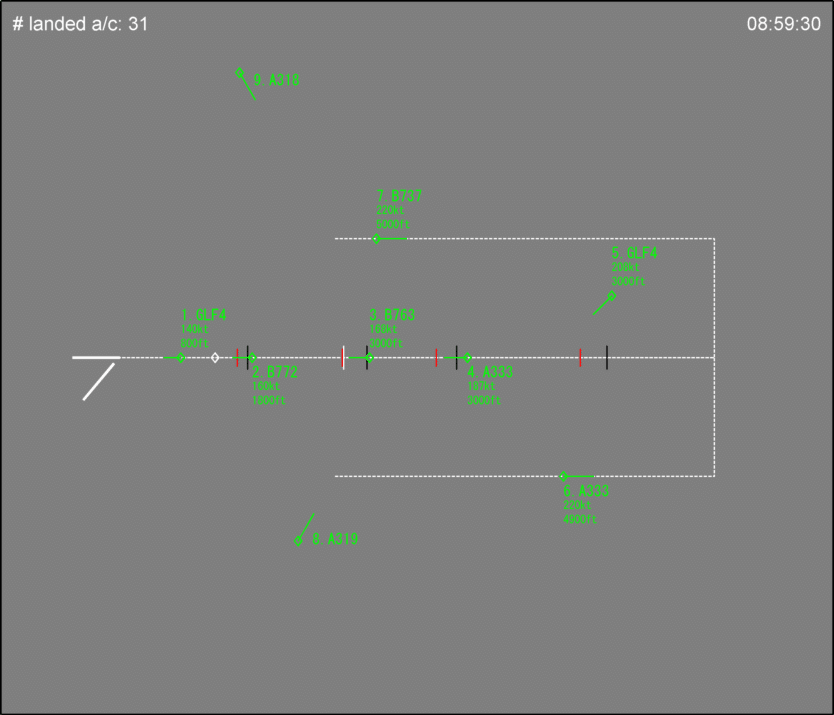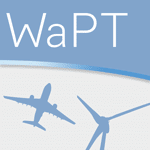 WaPT has developed a Fast-Time Simulation (FTS) tool emulating
WaPT has developed a Fast-Time Simulation (FTS) tool emulating
– an approach environment with an incoming arrival traffic flow
– in specific wind conditions and
– considering a given separation scheme and separation mode.
Its use allows us to assess the local impact on runway performance of various concepts including those developed in SESAR (RECAT, RECAT-Pairwise, Time-Based Separation, ROCAT, REDSEP, …) in various wind conditions. It was developed in collaboration with EUROCONTROL.
The FTS tool accounts for
– Local arrival traffic mix
– Wind conditions
– Runway Occupancy Time (ROT) Spacing
– Minimum Surveillance Separation (MRS)
– Time- or Distance-Based wake turbulence Separations (TBS or DBS)
– Gap in mix mode
 Its uses the TBS-ORD separation indicators :
Its uses the TBS-ORD separation indicators :
– Final Target Distance (FTD) providing the separation minima to be delivered at threshold and
– Initial Target Distance (ITD) providing the spacing to be applied before leader deceleration in order to account for the separation compression.
It provides, amongst other data:
– Runway throughput
– Flying time
– Fuel Burn
– Go-around statistics
The tool is based on
– Realistic aircraft behaviour (calibrated based on experimental data)
– Realistic ATC behaviour (based on Real-Time Simulation results)
Comparison between ICAO Distance-Based separation (DBS) vs RECAT-EU Time-Based Separation (TBS) operation for the same traffic in the same wind conditions.
